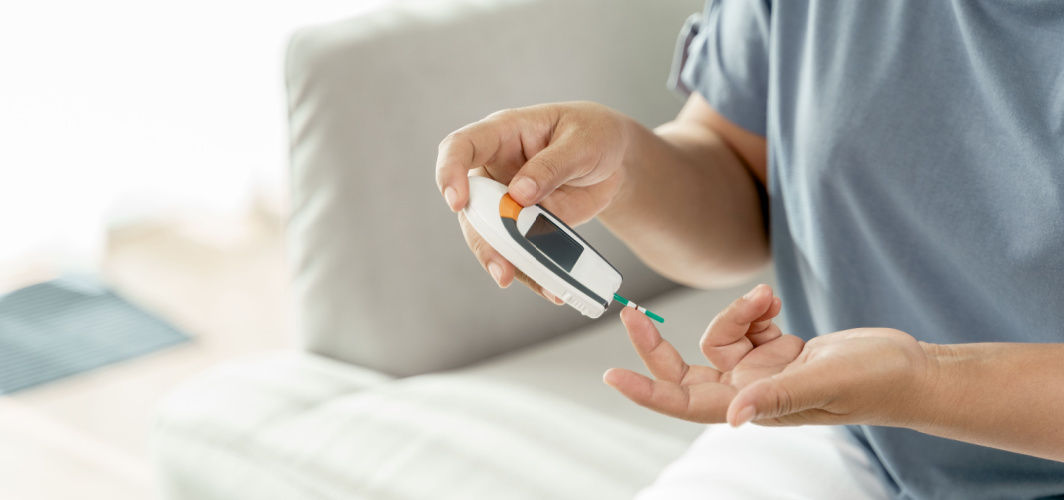Diabetes Management
Sugar Substitutes: Is It Safe for You?
6 min read
By Apollo 24/7, Published on - 01 October 2020, Updated on - 31 March 2023
Share this article
0
20 likes

Artificial sweeteners and sugar substitutes have been the subject of intense debate among researchers, physicians, manufacturers, and consumers. In the diabetes community, sugar substitutes have been both maligned and praised for the role they play in offering people an alternative choice to unhealthy refined sugar.
Are such substitutes safe and healthy? To date, both the US Food and Drug Administration (FDA) and the Food Safety and Standards Authority of India (FSSAI) have approved several sugar substitutes for human consumption. Let us begin by understanding what sugar substitutes are and the different types commercially available in the market.
What Are Sugar Substitutes? What Are Its Types?
“Sugar substitutes” or artificial sweeteners are an alternative to regular table sugar (sucrose) and are used to sweeten food or drinks without adding too many calories or raising blood sugar levels. These are especially used by people affected by diabetes. Hence, the American Heart Association (AHA) has labelled these sweeteners under the category of non-nutritive sweeteners.
Nutritive sweeteners, on the other hand, contain some calories but half of the amount present in sugar. Some examples of nutritive sweeteners are agave, fructose, high fructose corn syrup, and honey. These sweeteners are not recommended for diabetic and obese patients.
Sugar alcohol or polyols are also considered nutritive sweeteners and can be found in products that are labelled ‘reduced sugar’ or ‘sugar-free’. They are natural sugar substitutes derived from plants.
Sugar Substitutes Permitted To Be Used In Food By The FDA
As stated earlier, the FDA has approved the use of eight sugar substitutes or non-nutritive sweeteners in food.
- Luo Han Guo (monk fruit) extract: This non-nutritive natural sweetener extracted from crushed monk fruit is about 100-250 times sweeter than table sugar. Research has shown that it does not raise blood sugar levels and adds extra calories. Hence, it can be consumed by both diabetic and obese patients.
- Saccharin: Discovered and used since 1879 but approved by FDA in 1958, Saccharin is a non-nutritive artificial sweetener. It is about 200-700 times sweeter than table sugar and it is approved for use as a sugar substitute in processed foods and cooking. Typical brands in this category include ‘Sweet N Low’ and ‘Sugar Twin’.
- Aspartame: The FDA approved Aspartame in 1996 as a ‘general-purpose sweetener’. It is about 200 times sweeter than table sugar and is used in yoghurt, cereals, diet soda, candy, gelatine desserts, etc. People affected with phenylketonuria (PKU), a rare hereditary disease, should be cautious or consult a doctor before using Aspartame. This category includes brands like ‘Equal’ and ‘Nutrasweet’.
- Acesulfame potassium (Ace-K): This artificial non-nutritive sweetener is a general-purpose sweetener and flavour enhancer in food. It is about 200 times sweeter than table sugar. Also known as Ace-K, it is used as a sugar substitute in baked items, frozen desserts, candies, and beverages like sugar-free soda.
- Stevia: It is a natural sweetener extracted from the Stevia rebaudiana (Bertoni) plant. Its sweetness is around 200-400 times that of table sugar (sucrose). Stevia is calorie-free and does not raise blood sugar levels. Hence, it can be taken by diabetics and obese people to keep their sugar and calorie levels in check.
- Advantame: This is the most recent non-nutritive sweetener approved by the FDA in 2014 for use as a general-purpose sweetener and flavour enhancer in foods. It is about 20,000 times sweeter than table sugar and is heat resistant, making it suitable as a sugar substitute in baked goods.
- Sucralose: Sucralose is about 600 times sweeter than sugar. Found in low-calorie food items, it is used as a sugar substitute in cooking and baking. In addition to these, Sucralose may be used as a table-top sweetener and is found in syrups, dairy products, baked goods, desserts, and canned fruits. This category includes brands like ‘Natura’ and ‘Splenda’.
- Neotame: This non-nutritive and non-caloric sweetener is a general-purpose sweetener and flavour enhancer in food. Neotame is about 7,000-13,000 times sweeter than table sugar. Due to its higher shelf-life and heat-stable nature, it is widely used in the baking industry. Since it is derived from Aspartame, phenylketonuria (PKU) patients should use it with caution.
What Are The Benefits Of Sugar Substitutes?
Sugar substitutes like artificial sweeteners, natural sweeteners, and sugar alcohols (polyols) are recommended for people with diabetes, obesity, and tooth decay. It is also used to enhance the taste and flavour of foods. Some of the benefits of using sugar substitutes are listed below:
- Weight management: Replacing high-sugar or high-calorie foods with sugar substitutes that have zero or low calories can help people to manage their weight. Sugar substitutes allow them to eat and enjoy the same food/drinks as normal people do, without adding those extra calories.
- Diabetes mellitus: People with diabetes have difficulty controlling their blood sugar levels. Hence, cutting down the intake of sugar by replacing it with sugar substitutes can help them to keep their sugar levels stable.
- Dental care: Some sugar substitutes sometimes are tooth-friendly. People affected with dental caries or decay due to excess sugar intake can opt for sugar substitutes to benefit their dental health. One such sweetener is Xylitol, an antimicrobial low-calorie sugar substitute.
What Are The Drawbacks Of Sugar Substitutes?
A sufficient amount of calories is needed by the body every day for proper functioning and growth, especially for growing children. If low-calorie foods are consumed every day, their bodies may lack the calories needed for their growth. The same applies to adults where inadequate calories may disturb the sustenance of the body. Seeking the advice of an endocrinologist for a balanced diet that meets the calorie requirements is recommended.
How Safe Are Sugar Substitutes?
Sugar substitutes are regulated and approved by the FDA for sale as food additives after review and observation for long-term safety. However, sometimes the FDA approves sugar substitutes or artificial sweeteners as “generally recognized as safe” (GRAS) based on scientific evidence and data. Besides this, the FDA also fixes the value of an “acceptable daily intake” (ADI) for each sugar substitute at very conservative levels. ADI is the maximum amount that is considered safe for a human to consume per day throughout a lifetime.
As per Dr Mithun Bhartia, an endocrinologist associated with Apollo 24|7, “You do not sugar or sugar substitutes to make your life sweeter. While using artificial sweeteners may seem like a good option to replace refined sugar, it is best to avoid sugar all together.”
Conclusion
While sugar substitutes are especially helpful to manage conditions like diabetes, the consumption of excessive amounts can still raise blood sugar and add calories to the body. Moreover, processed foods containing sugar substitutes may not provide the same health benefits as whole food (cereals, fruits, nuts or vegetables) or natural starchy food. While it is a personal choice about which of the sugar substitutes one can opt for, it is advisable to seek the expert opinion of a doctor.
Medically reviewed by Dr Sonia Bhatt.
Diabetes Management
Leave Comment
Recommended for you

Diabetes Management
How To Know If You Have Insulin Resistance?
Reduced reactivity to insulin is one of the symptoms of insulin resistance, which affects how glucose is metabolised. Recognising its symptoms, understanding its causes, and undergoing appropriate testing are essential for early detection and effective management. With lifestyle modifications, medications, and regular monitoring, individuals can successfully manage insulin resistance and improve their overall health.

Diabetes Management
Bariatric Surgery and Diabetes: Who Can Benefit?
Bariatric surgery can be beneficial for individuals with obesity and type 2 diabetes. Research suggests that this surgical intervention can lead to significant weight loss and improvement in diabetes control. Candidates for bariatric surgery typically include individuals with a body mass index (BMI) over 35 and poorly controlled blood sugar levels.

Diabetes Management
Diabetes & Thyroid: The Endocrine Connection
Numerous scientific studies have found a correlation between diabetes and thyroid disease. A recent study found that individuals with prediabetes and thyroid disease have an increased risk of developing type 2 diabetes. Another study has revealed that both hypothyroidism and hyperthyroidism can lead to insulin resistance, increasing the likelihood of developing type 2 diabetes.
Subscribe
Sign up for our free Health Library Daily Newsletter
Get doctor-approved health tips, news, and more.
Visual Stories

8 Fruits That are Incredibly Healthy for Diabetes
Tap to continue exploring
Recommended for you

Diabetes Management
How To Know If You Have Insulin Resistance?
Reduced reactivity to insulin is one of the symptoms of insulin resistance, which affects how glucose is metabolised. Recognising its symptoms, understanding its causes, and undergoing appropriate testing are essential for early detection and effective management. With lifestyle modifications, medications, and regular monitoring, individuals can successfully manage insulin resistance and improve their overall health.

Diabetes Management
Bariatric Surgery and Diabetes: Who Can Benefit?
Bariatric surgery can be beneficial for individuals with obesity and type 2 diabetes. Research suggests that this surgical intervention can lead to significant weight loss and improvement in diabetes control. Candidates for bariatric surgery typically include individuals with a body mass index (BMI) over 35 and poorly controlled blood sugar levels.

Diabetes Management
Diabetes & Thyroid: The Endocrine Connection
Numerous scientific studies have found a correlation between diabetes and thyroid disease. A recent study found that individuals with prediabetes and thyroid disease have an increased risk of developing type 2 diabetes. Another study has revealed that both hypothyroidism and hyperthyroidism can lead to insulin resistance, increasing the likelihood of developing type 2 diabetes.